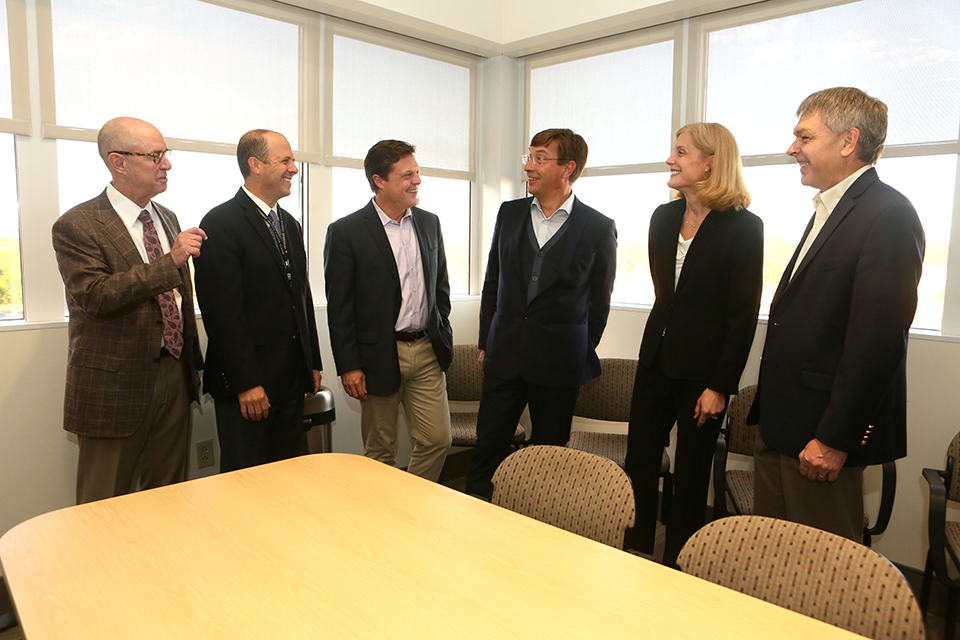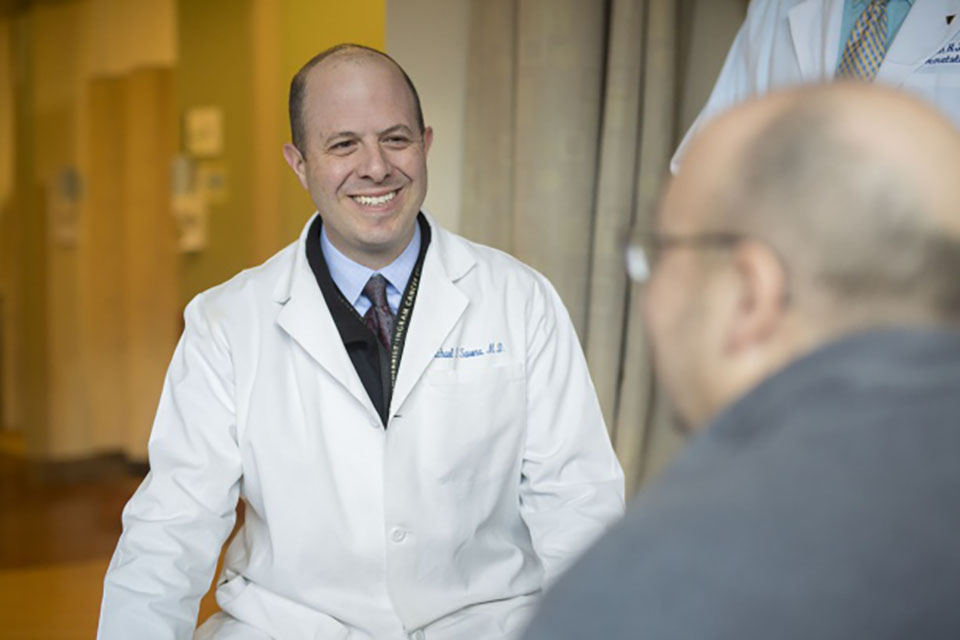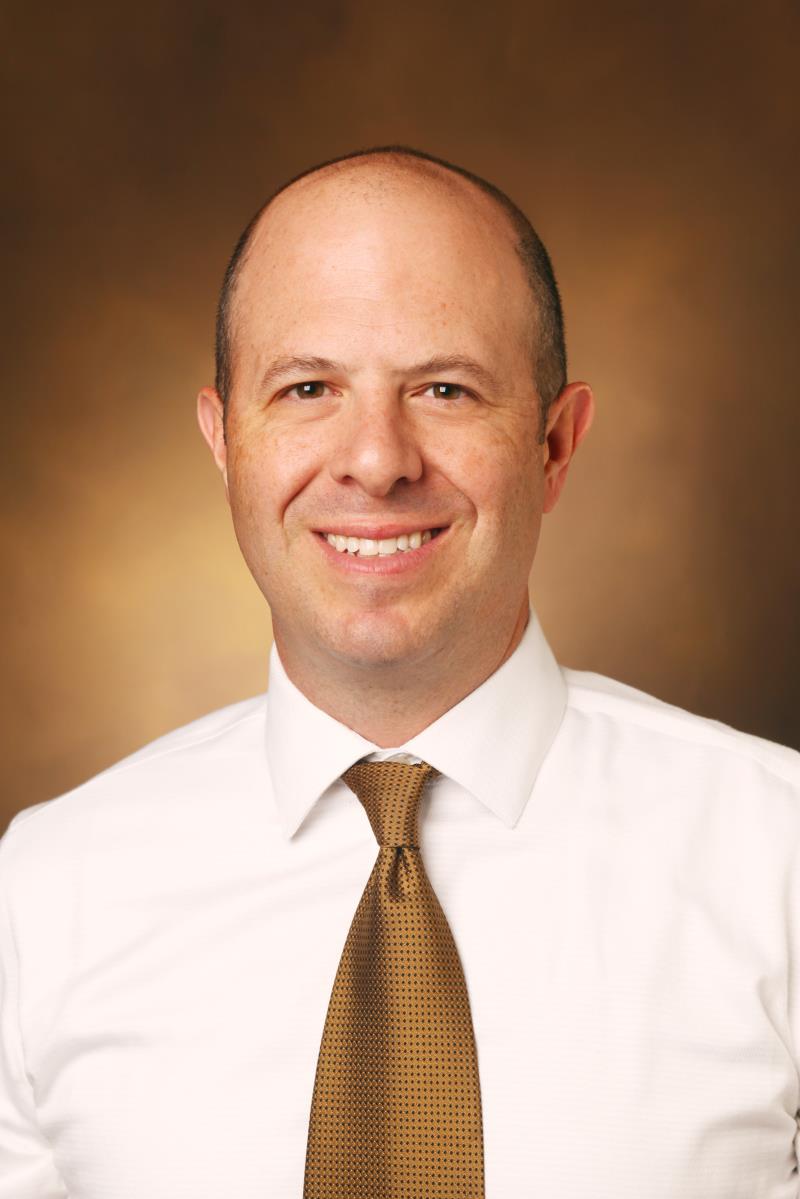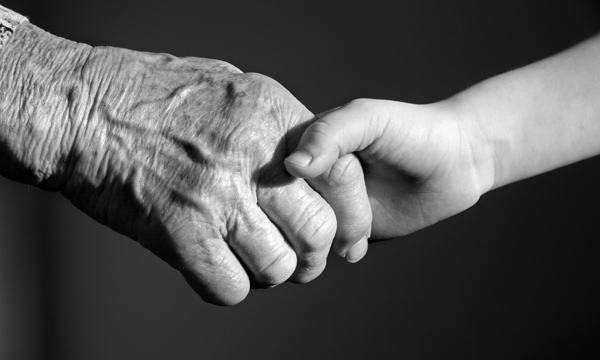Savona Lab
The Savona Laboratory focuses on hematopoiesis and the biology of myeloid diseases (including acute myeloid leukemia, myelodysplasia, myeloproliferative neoplasms, and MDS/MPN overlap syndromes).
Understanding how to attack therapeutic liabilities in myeloid malignancies requires a composite investigation of intrinsic and extrinsic factors in the bone marrow.
We study the genesis of marrow disease in our investigations of clonal hematopoiesis, the marrow niche with human hematopoietic cells in ex vivo organoid model systems, and the effects of therapy and behavior of disease in correlative assays from clinical trials.
Discovering biomarkers of response to therapy, and novel model development is central to our ethos. The translational tenor with the laboratory emanates from the hopes of advancing discoveries quickly to the clinic.

Our mission is to develop the best therapy as quickly as possible for the appropriate patients. This mission drives our inquiry into fundamental questions of myeloid biology and the interaction between hematopoietic cells and their environs, our search for meaningful biomarkers of response, and our decisions to develop new therapy in areas of considerable need.

The Savona Laboratory generates mesenchymal spheroids to sustain and study MDS patient samples which previously have not been sustained ex vivo for more than a few days. This collaboration with the Guzman Laboratory at Weill Cornell Medical Center led to the honor of a Discovery Grant from the EP Evans Foundation. We are optimizing conditions to observe the behavior of MDS cells for over 30 days ex vivo and will share these models with MDS investigators.
In addition, ongoing collaborations with the Guelcher Laboratory to engineer synthetic bone marrow systems to study clonal variants in hematopoietic cells and their behavior in bioreactors and xenografted ossicle systems beings together our study of mesenchymal spheroids with our burgeoning discoveries and investments in understanding clonal hematopoiesis.
Clonal hematopoiesis (CH) is an age-associated phenomenon characterized by the presence of an expanded somatic clone in hematopoiesis that can contribute to vascular disease or myeloid malignancies. While outgrowth of hematopoietic clones containing mutations in specific genes is linked to inflammatory states, the plasticity of clonal hematopoietic stem and progenitor cells (HSPCs) in severe inflammatory settings is poorly understood.
Pathologic clonal outgrowth may have long-term consequences vis-à-vis development of end-organ damage, bone marrow failure, and neoplasia, but may also deleteriously impact the immune response from acute insults, such as SARS-CoV-2 infection. CH may enrich for proinflammatory environments which increase the risk of developing myeloid malignances or endovascular disease. CH is characterized by the outgrowth of clones expressing mutations of specific genes (e.g., TET2, DNMT3A, JAK2, ASXL1, PPM1D, etc.) that also give rise to myeloid malignancies.
Most patients with CH never develop myeloid malignancies, but the relative risk of developing myeloid malignancies or vascular disease increases considerably with CH. Furthermore, large mutant allele fraction of CH is strongly associated with both leukemic transformation and CVD. Though the mechanisms for this association is yet to be discovered for most clones, some specific mutations have clear downstream effects on inflammatory signaling. Loss-of-function TET2 mutations, for example, disable epigenetic negative regulation of transcription of IL-6, leading to its uncontrolled expression that is implicated in clinical cytokine storms, and the most common CH mutations (DNMT3AR882*) occur in proinflammatory environments.
We study how proinflammatory milieu is affects the expansion and immune cells in the setting of specific CH mutations, thereby predisposing the marrow to malignant transformation.
Our work with Amit Verma, MD, focuses on how the dust from the World Trade Center catastrophe affects the inflammasome and hematopoietic cells, leads to CH, and increases risk of disease. Using engineered models of the BM, we aim to answer these research questions: How do proinflammatory stimuli alter monocyte proliferation in the endosteal niche in the context of CH? Does targeting/removal of the mutations via signal degradation restore normal hematopoiesis, thereby providing a potential opportunity for targeting of CH in patients with active inflammatory conditions? Do clonal HSPCs respond differently to proinflammatory signals in the endosteal and perivascular niches of the BM?
Our tools to study CH (e.g., recombineered CH clones within CD34+ cells, ex vivo marrow modeling systems, and inducible knock-in mice) allow us to validate findings observed from large data explorations done in the Vanderbilt unique tool: BioVU. BioVU is Vanderbilt’s biorepository of DNA extracted from discarded blood collected during routine clinical testing and linked to de-identified medical records in the Synthetic Derivative (SD). There are ~300,000 unique samples (often, sequential samples from unique patients), and annotation from the SD.
We have developed unique methods to study CH within BioVU and the SD, and work together with geneticists, bioinfomaticians, biostatisticians, and clinical scientists. This is paired with several ongoing efforts to capture a cohort of patients’ blood samples as they develop CH, and progress to disease with CHIVE. Clonal Hematopoiesis and Inflammation in the VasculaturE (CHIVE) is a multidisciplinary group studying this cohort, but also learning how to best risk assess, advise and protect patients with CH.


The Savona Lab also focuses on control of mitochondrial metabolism within various myeloid leukemias and chronic myeloid disease. As control of apoptosis in the mitochondrial membrane is managed by BCL2 family members, we have focused efforts on therapy directed at targeting specific antiapoptotic BCL2 family members. The BH3 mimetic targeting BCL2, venetoclax, has revolutionized modern therapy of myeloid neoplasms, and we have worked to discover means of resistance to venetoclax via alternative BCL2 family members, genotypic changes, metabolic switches, or, a combination of these factors.
This led to the development of an MCL1 inhibitor series in the collaboration with the Fesik Laboratory, exploration of alternative energy utilization in collaboration with the Jordan Laboratory, industrial collaborations with Abbvie, Takeda, and Karyopharm, and multicenter clinical trials led by Vanderbilt clinical investigators.
Dr. Michael Savona has been involved in the development of dozens of recently approved therapies as an investigator, inventor, developer, or consultant. He treated the first patients in the world in clinical trials for hematologic malignancies with several approved therapies including oprozomib, selinexor, ixazomib, Inqovi, umbralisib, duvalesib, and ASTX030.
Savona Lab News

'Nashville firefighters help in Vanderbilt study focusing on 9/11'
WSMV News feature: Long-term effects of smoke and chemicals on blood, includes an interview with Michael Savona, MD.

'Our Aging Blood: The quest to address how age-related mutations drive blood cancers'
"In this rapidly evolving field, as the investigators learn more about the impact of blood changes and develop better treatments, they will be ready to respond more quickly with the right therapies," says Michael Savona, MD.